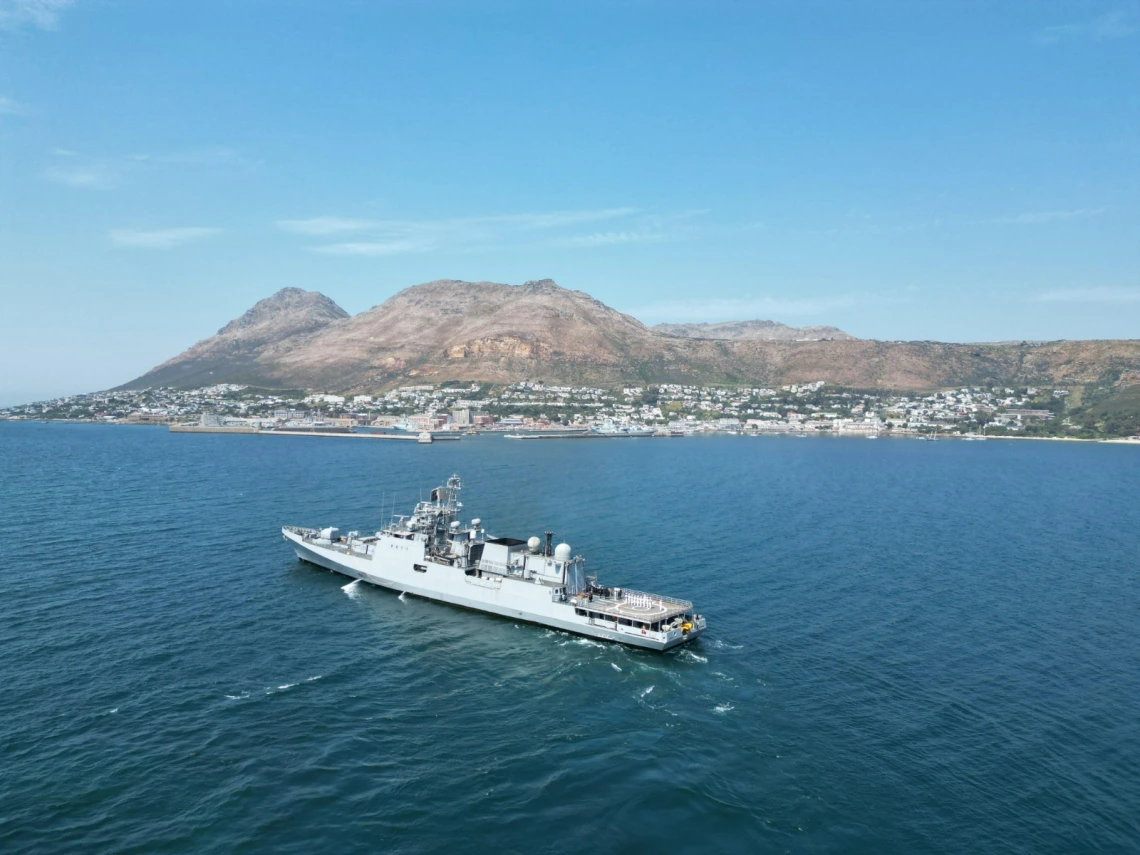India’s relationship with Africa has long been anchored in shared values, mutual respect, and a commitment to regional stability. Over recent years, this relationship has taken on a new operational dimension, particularly in the maritime sphere. India is committed to its Security and Growth for All in the Region (SAGAR) policy. As a result, the Indian Navy has expanded its presence in African waters. It has also deepened its partnerships through specific, high-impact tactical collaborations. The recent agreements and joint initiatives between the Indian and South African navies offer a compelling blueprint. They enhance mutual security in the Indian Ocean Region (IOR) and the broader African maritime domain.
This operational shift aligns with India’s broader African outreach. Prime Minister Narendra Modi’s recent visit to Nigeria highlighted this outreach. Modi focused on strengthening strategic ties with African nations across defense, trade, and energy. It became evident that India’s maritime partnerships are key to its larger African diplomatic framework. These engagements include new agreements with South Africa. They illustrate India’s intent to serve as a security provider. India also aims to be a developmental partner for the continent.
A New Chapter in India-South Africa Naval Ties
While SAGAR has provided a strategic framework for India’s maritime engagements, recent collaborations have shifted towards more hands-on, operational cooperation. Both nations face shared threats, such as piracy. They also deal with illegal, unreported, and unregulated (IUU) fishing and the challenges of vast, unmonitored coastlines. The need for coordinated action has never been greater. The latest partnerships between India and South Africa add crucial layers of operational depth. They are moving from policy agreements to active joint undertakings. These efforts directly enhance the capacities of both navies.
Submarine Rescue Capabilities: A Lifeline for Regional Stability
A key milestone in the India-South Africa naval relationship is the recent agreement on submarine rescue support. The pact was signed in September 2024. It enables the Indian Navy to deploy its Deep Submergence Rescue Vehicle (DSRV). This support is for the South African Navy (SAN) during emergencies. South Africa has a small submarine fleet and limited rescue infrastructure. Therefore, this agreement is a strategic asset. It provides the SAN with a safety net for underwater operations.
India’s recent emphasis on sharing advanced defense capabilities with African nations was echoed during PM Modi’s visit to Nigeria. He offered similar support mechanisms to bolster Africa’s self-reliance and enhance defense capabilities. India’s DSRV fleet, with its proven operational readiness, exemplifies this commitment.
Operational Sea Training: Enhancing Tactical Readiness
Beyond hardware and rescue capabilities, India has also bolstered South Africa’s naval capacity through targeted training initiatives. In November 2024, a delegation from the South African Navy visited the Indian Navy’s Sea Training headquarters in Kochi, Kerala. This visit marked a new level of interaction in the long-standing India-South Africa naval partnership. It focused on Operational Sea Training (OST) and crew skill-building exercises.
These efforts reflect India’s comprehensive maritime training initiatives offered to other African nations. This includes its development cooperation programs, highlighted during Modi’s engagements with African leaders. Such efforts position India as a “Preferred Training Partner” for African navies, empowering them to tackle regional threats more effectively.
IBSAMAR VIII: Building Multinational Naval Cohesion
The eighth iteration of IBSAMAR is a trilateral exercise with Brazil and South Africa. It further highlighted India’s commitment to strengthening naval ties with Africa. IBSAMAR VIII took place in October 2024. The Indian Navy’s stealth frigate INS Talwar visited Simon’s Town, South Africa. It participated in a series of joint exercises. IBSAMAR VIII focuses on Blue Water Naval Warfare. It also concentrates on surface and anti-air warfare and maritime domain awareness. This represents a robust commitment to tactical coordination and enhanced interoperability.
A Blueprint for Broader Africa-India Maritime Cooperation
Looking to the future, the India-South Africa naval partnership may serve as a template for wider collaborations across Africa. The success of training and operational support with the South African Navy paves the way for other African nations. These nations can pursue similar agreements with India. African navies can benefit significantly from India’s expertise in submarine rescue capabilities. They can also benefit from port calls and joint exercises. Additionally, India’s training infrastructure and rapid-response capabilities are advantageous.
Modi’s announcement in Nigeria underscored this potential. He reaffirmed India’s readiness to extend its maritime cooperation to other African partners. The Gulf of Guinea is plagued by piracy. It could see immediate benefits from enhanced naval coordination with India. This coordination would pave the way for a stronger, more secure maritime domain.
Strengthening Africa’s Naval Capacities Through Tactical Partnerships
The evolving India-South Africa naval partnership highlights a shift towards actionable, mutually beneficial cooperation that transcends traditional defense alliances. India offers critical capabilities, including submarine rescue support and intensive sea training. By doing so, India helps fortify the security architecture of the African maritime landscape. Through joint exercises, India and South Africa demonstrate how effective tactical collaboration can build lasting resilience and regional stability.
For Africa, these initiatives emphasize the potential of partnerships that focus on practical outcomes. India is positioning itself as a security provider in the IOR. Its role as a training partner for African nations is crucial. It is also an operational ally to secure a safer and more stable maritime environment. Through each new exercise, they build a shared framework for security. Each agreement further solidifies their partnership. Training engagements promise to reshape the maritime domain for years to come.
Featured image: Indian Navy

